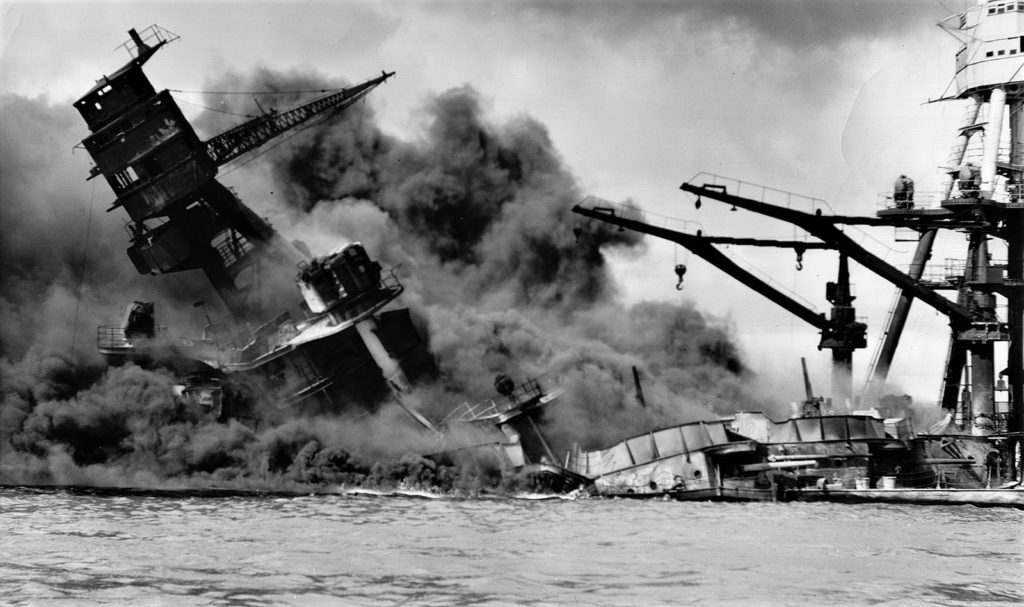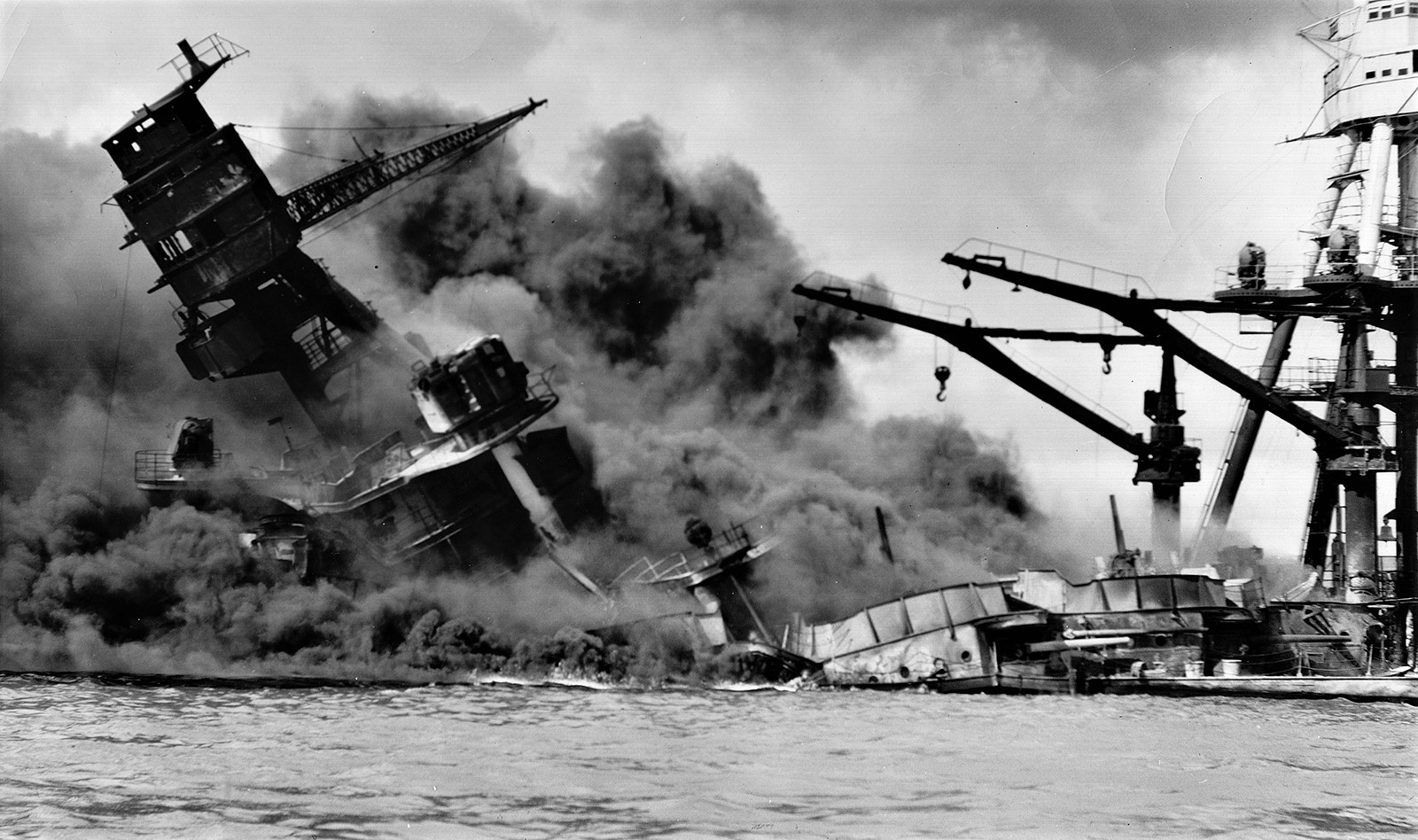With the lack of courage and duty in Washington, it’s more important than ever to take a moment to remember some of the heroes who acted above and beyond 79 years ago, today.

National Archives, Washington, D.C.
As memorialized by the History Channel, here are four stories that show what courage and duty look like.
“Missouri-born Samuel Fuqua had a front row seat to the devastation at Pearl Harbor from aboard USS Arizona, a battleship that was heavily bombed during the first wave of the attack. The 42-year-old lieutenant commander was having breakfast when the ship’s air raid sirens first sounded around 7:55 a.m. He immediately rushed to the quarterdeck, only to be strafed by enemy fire and then knocked out cold when a bomb fell just feet away from him.
“Though dazed, Fuqua jumped to his feet after regaining consciousness and began directing firefighting operations. Moments later, he became the Arizona’s senior surviving officer after another bomb detonated the ship’s ammunition magazine, killing more than 1,000 men. As burned and maimed sailors poured onto the deck, Fuqua ignored gunfire from passing aircraft and calmly led efforts to evacuate his sinking ship.
“ ‘I can still see him standing there,’ Arizona crewman Edward Wentzlaff later remembered, ‘ankle deep in water, stub of a cigar in his mouth, cool and efficient, oblivious to the danger about him.’
“Fuqua was among the last men to abandon ship. He and two fellow officers then commandeered a boat and braved heavy fire while picking up survivors from the fire-streaked waters. He went on to win the Medal of Honor for his actions at Pearl Harbor, and was later promoted to rear admiral upon his retirement from the Navy in 1953.”
“Doris Miller’s skin color usually relegated him to the role of cook and laundry attendant aboard USS West Virginia, but when the ship was struck by multiple bombs and torpedoes on December 7, he became one of its most vital crew members. Miller had rushed to his battle station amidships as soon as the shooting started. Finding it destroyed, the amateur boxer sprinted to the quarterdeck and used his hulking frame to help move the injured. Miller was among the men who carried the ship’s mortally wounded skipper to safety, and he then helped pass ammunition to the crews of two .50 caliber machine guns.
“Despite having no weapons training, he eventually manned one of the weapons himself and began blasting away at the Japanese fighters swarming around the ship. ‘It wasn’t hard,’ he later remembered. ‘I just pulled the trigger and she worked fine…I think I got one of those Jap planes. They were diving pretty close to us.’
“Miller continued to operate the gun for some 15 minutes until ordered to abandon ship. His actions earned him the Navy Cross—the first ever presented to an African American—and he was widely hailed as a war hero in the black press. He later toured the country promoting war bonds before being reassigned to the escort carrier Liscome Bay. Sadly, Miller was among the 646 crewmen killed when the ship was torpedoed and sunk in 1943.”
“Army Air Corps pilots George Welch and Kenneth Taylor spent the evening before the Pearl Harbor attack attending a formal dance and playing poker until the wee hours of the morning. They were still sleeping off their night of partying when they were awakened around 8 a.m. by the sound of exploding bombs and machine gunfire. Not wanting to miss out on a fight, the pair threw on their tuxedo pants and sped to Haleiwa airfield in Taylor’s Buick, dodging strafing Japanese planes along the way. Just minutes later, they became the first American pilots to get airborne after they took off in their P-40 fighters.
“Welch and Taylor went on to wage a lonely battle against hundreds of enemy planes. They even landed at Wheeler airfield at one point and had their ammunition replenished before rejoining the fray. By the time the attack ended, the second lieutenants had shot down at least six fighters and bombers between them. Both were awarded the Distinguished Service Cross for their high-flying exploits, and Taylor was given a Purple Heart for a shrapnel wound he received when his P-40 was struck by machine-gun fire.”
While Fuqua, Miller, Welch and Taylor came from different backgrounds, their heroic actions and teamwork, and the tens of thousands of others like them in conflicts since the Revolutionary War, made this country safer so we could all enjoy the democracy too many of us take for granted. Despite color, religion, or political party, their immediate response demonstrated the best we can be under extraordinary circumstances.
As our current circumstances militantly divide us, we need to remember the valor and cohesive spirit of these four men, and ask ourselves: are we living up to the same spirit that Fuqua, Miller, Welch and Taylor demonstrated in the name of American democracy?
Comments
Leave a Comment












Yes Jim, as our current circumstances militantly divide us, we need to remember the valor and cohesive spirit of other good people.